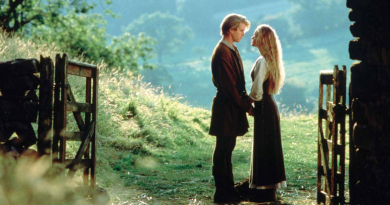They hired me because I had a background in experimental power plants. A couple of years before, I’d been a technician at a hybrid gas and hydroelectric outpost in Alaska – it hadn’t worked, gas had become too expensive for them to use effectively, but it was enough to get me noticed by the government. I’d implemented a couple of cost-saving features, maximising output and reducing the number of people employed at the facility, and that was the kind of thing they liked. Governments say they’re there for the people, but they’ll lay off workers whenever they can, just like any other corporation. Particularly now: people not working for the government are people they can draft to go to war.
My first day at the new plant, they assigned me to a supervisor named Phillip Briggs. He was a big man, with imposing shoulders and a gelled-up haircut you could eat your dinner off. He didn’t tell me much. It was a new form of chemical energy, he said, that was cleaner and more efficient than anything they’d used before. Now that oil was all but gone and electricity was more necessary than ever before, with the war still going and both TV and the National Internet up and running again, the government was scrambling for new ways to generate power. Once I had all the security clearances and they were sure I wasn’t going to pass them onto the enemy, they’d give me the details and I could begin my job properly. For the moment, Briggs said, I was to familiarise myself with the layout, the staff, the procedures and the equipment, so I’d be ready to go once I got the technical information.
My office was an interminable grey, with instrument panels dotted around the walls (the buttons and displays were grey too, only in different shades) and a small rectangular window looking out onto a supply corridor a storey below, which was white. That was the colour scheme: corridors were white, rooms were grey. Everywhere. When I left my office, I’d often have to wait for my eyes to adjust to the brightness.
I’d been sat at my desk for three or four hours, reading a procedural manual (manuals were green) and wondering what the procedure was for getting a cup of tea, when I heard a noise outside, like heavy rain on a metal roof or marbles being poured out of a bag. I looked out of my window and saw people dressed in grey uniforms, walking in single file, their heads down, eyes watching the floor. There were hundreds of them, seemingly not daring to look up, all hunched over in the same way, walking at their own pace but somehow in unison. And then, after ten minutes or so, they stopped as suddenly as they had started.
Over our colourless, over-boiled regulation lunches, I asked Mr Briggs who the people had been. The answer surprised me: they were prisoners, sent from correctional facilities across the country to perform the more menial tasks within the plant. We were actually paid to take them, which alleviated costs and freed paid employees to do more essential, technical tasks. It certainly made sense, but I was surprised they were trusted within a flagship power plant during a protracted war, when energy was so important.
“You needn’t worry about that,” Phillip Briggs said with a smile. “Security is our number one priority – as you’ll discover when you get your clearance.”
When I returned to my office that afternoon, I met no-one and didn’t hear a sound.
* * *
For the next few days, I found myself interrupted at exactly that time by the rumbling of the prisoners as they passed through the corridor. I tried to recognise some of the faces, see if I could pick the same characters out of the crowd, but it proved impossible; there were too many of them, it seemed, and in any case they were turned away from me, watching their feet as they crossed the sterile floor.
Each day I would spend hours at my desk reading the procedural manuals – which were as varied and interesting as the institutional decorating – before venturing out into the mess hall to eat my soggy, waterlogged food with Mr Briggs and his team of head officers. Conversation was limited, to say the least; every day I would ask more questions, try to discover a little more about how the plant worked, but found myself unable to learn anything new. They’d been trained to remain tight-lipped, like good civil servants, and I was going to remain shut out in the cold until I got my security clearance – whenever that was going to be.
On the fourth day, the routine was interrupted. Briggs and I were having lunch as usual when one of the prisoners ran into the mess hall, bloodied and bruised, and started shouting incomprehensibly. Through his jabbering, I made out a warning that we were all going to hell and the usual prisoner stuff about how he hadn’t done anything. He was protesting his innocence to a crew of power plant workers whose only interest was to finish lunch, get back to work, and, ultimately, provide food for our families; in effect, he was yelling at a brick wall, and most of us ignored him until he grabbed a fork from the table and plunged it into the neck of the nearest plant officer. Suddenly the walls seemed to be coated in blood spatter, tiny exclamation marks running down the grey and forming pools by his bare, dirty feet. We all took notice then, and within seconds other plant workers had pinned him down and were punching his face and groin. The man with a fork in his neck ran to the medical wing, screaming, a trail of splattered, liquid breadcrumbs marking his path.
And then it was over. Cleaning machines wheeled in and washed the surfaces; the prisoner was whisked off so quickly I didn’t even notice he was gone. People returned to their food and, although a handful of staff were missing, it was like nothing had happened.
Briggs smiled again. “Nothing like a bit of drama,” he said between mouthfuls, “to make you appreciate an uneventful day.”
* * *
As I drove into work the next morning, I resolved to find out how the prisoners were being treated, where they were watching, and how secure they really were. As the smokestacks loomed into view, the vapour mingling with the clouds in the bright spring sky, I thought about a prisoner stabbing something into me and shuddered.
In the morning, as usual, I read one of the green manuals and pondered whether anyone would notice if I smuggled in an electric kettle and a handful of teabags. I made notes, tried to learn how to use some of the proprietary equipment on my walls, whistled idly to myself and ordered some folders for my desk. I went through the motions of working normally.
When I was finally disturbed by the noise of the prisoners, I waited until they had disappeared further down the corridor and, quickly, so as not to lose them completely, left my office and ran down the flight of stairs that led to the space below my window. The noise was faint, but just loud enough to follow, and I walked towards it, slowly and calmly, as if I was carrying out an official task. I didn’t want to arouse suspicion; if Briggs knew I was snooping around, he would probably run me out on a rail. At the very least, it would jeopardise my security clearance. I had to look bored; pretend nothing was out of the ordinary.
We passed through what felt like miles of unchanging corridor; there was then a ramp, which led several storeys underground, and then more lifeless, uniform space. It was almost hypnotic – after a while there were no more rectangular windows looking out from the level above, and no more black security camera domes on the ceiling. Just miles of bright white ceiling, walls and floor – and in the distance, the fading sound of prisoners marching.
It took at least half an hour before the corridor curled round on itself, and I heard it then; it was like a mechanical heartbeat, the rhythmic sound of metal slamming against metal. As I walked further round the bend and began to see specks of blood against the white of the walls and the outlines of red footprints on the floor, the noise was joined by sobbing, and that of my own heartbeat.
These sounds together – the heartbeats of man and machine, the grief of men imprisoned against their will and what sounded like rain but couldn’t be – grew louder and louder as I continued to walk, until they were deafening and I couldn’t deny what I was hearing, couldn’t believe it, couldn’t think what else could it possibly be, almost couldn’t stand any more out of terror and the overpowering stench –
And then I saw the giant presses, crushing people like grapes until they formed a dark red paste, pouring blood everywhere, onto the floor, spraying onto the walls and ceiling. There were two guards standing there, watching people pulverised by machines into electricity – they turned from the murder they were overseeing, recognised my face, and smiled.
* * *
I ran that day, screaming and crying and desperate to forget what I had seen, and I’ve been running since. Yes, maybe you’ll choose not to believe me, but all I ask is that you listen and look out for the signs. You’ll see them, I promise – and then you must consider your cars, your computers, your television and your radio, and decide whether they are worth killing – worth dying – for. Every night for the rest of my life, I’ll be waking up afraid, remembering what I saw that day, under the clear blue sky and the concrete funnels as the clouds poured upwards.
The Cloud Machines
What do you think, did we get it right? Comment here...
Popular Content
WANT MORE FUNNY LIKE THIS? FOLLOW US ON FACEBOOK









